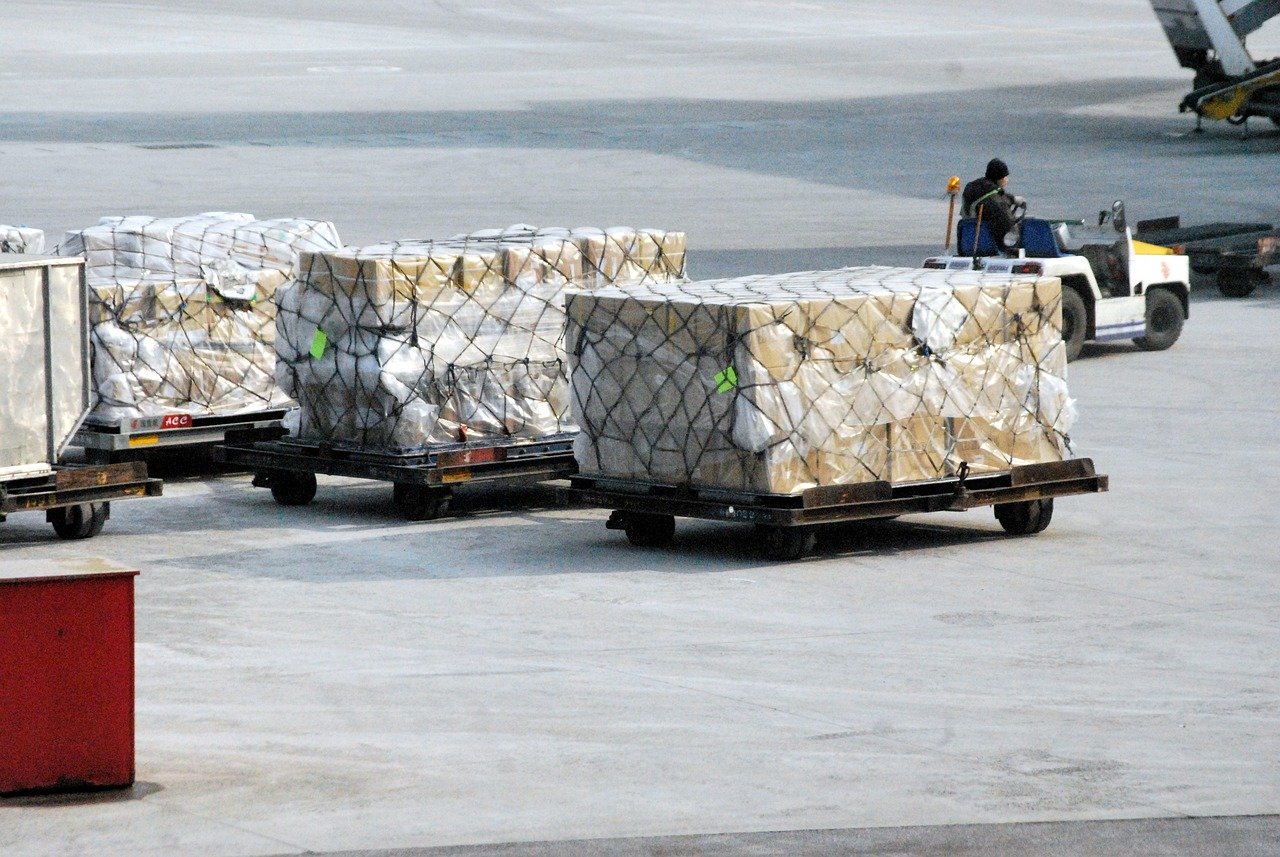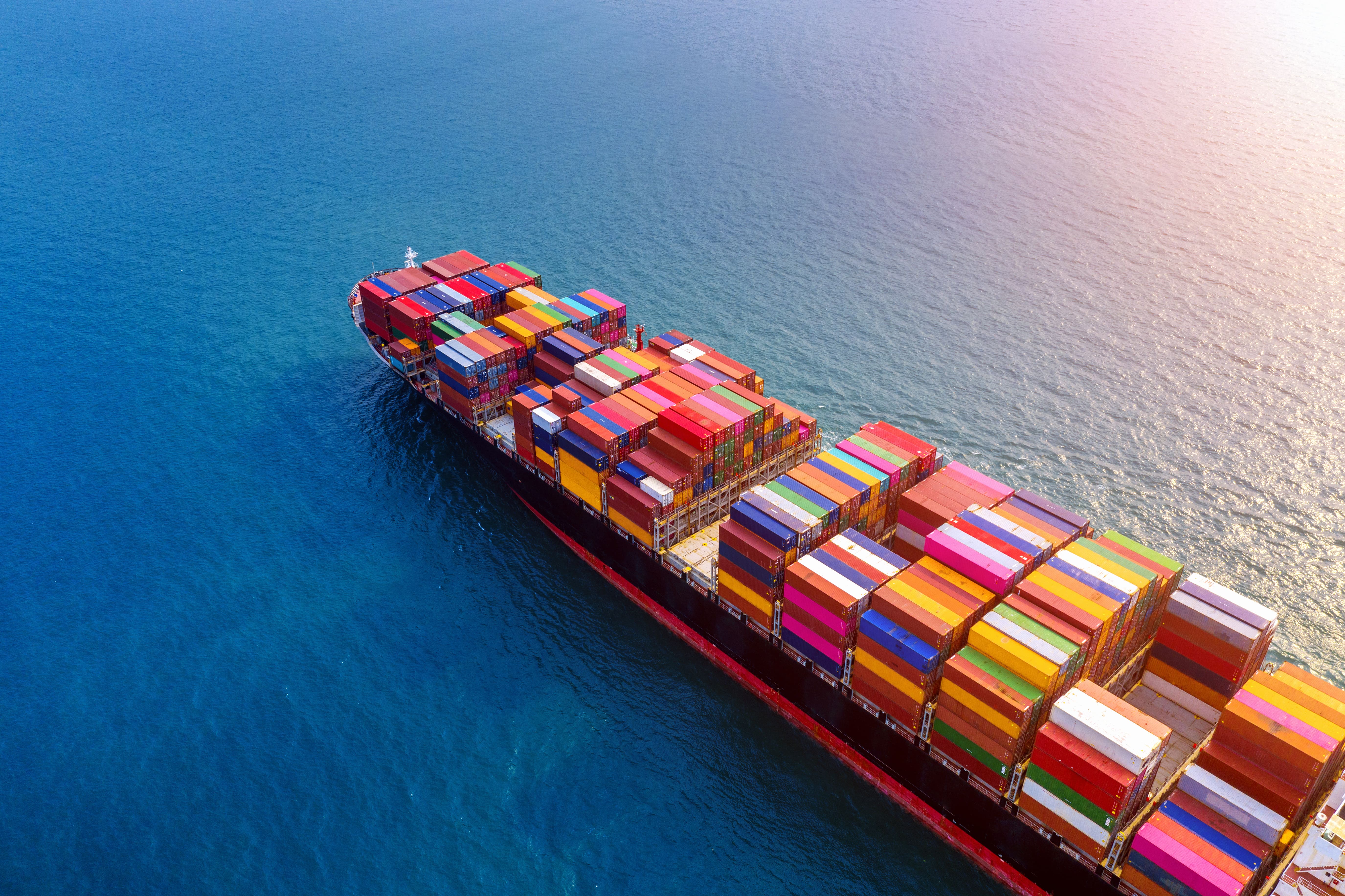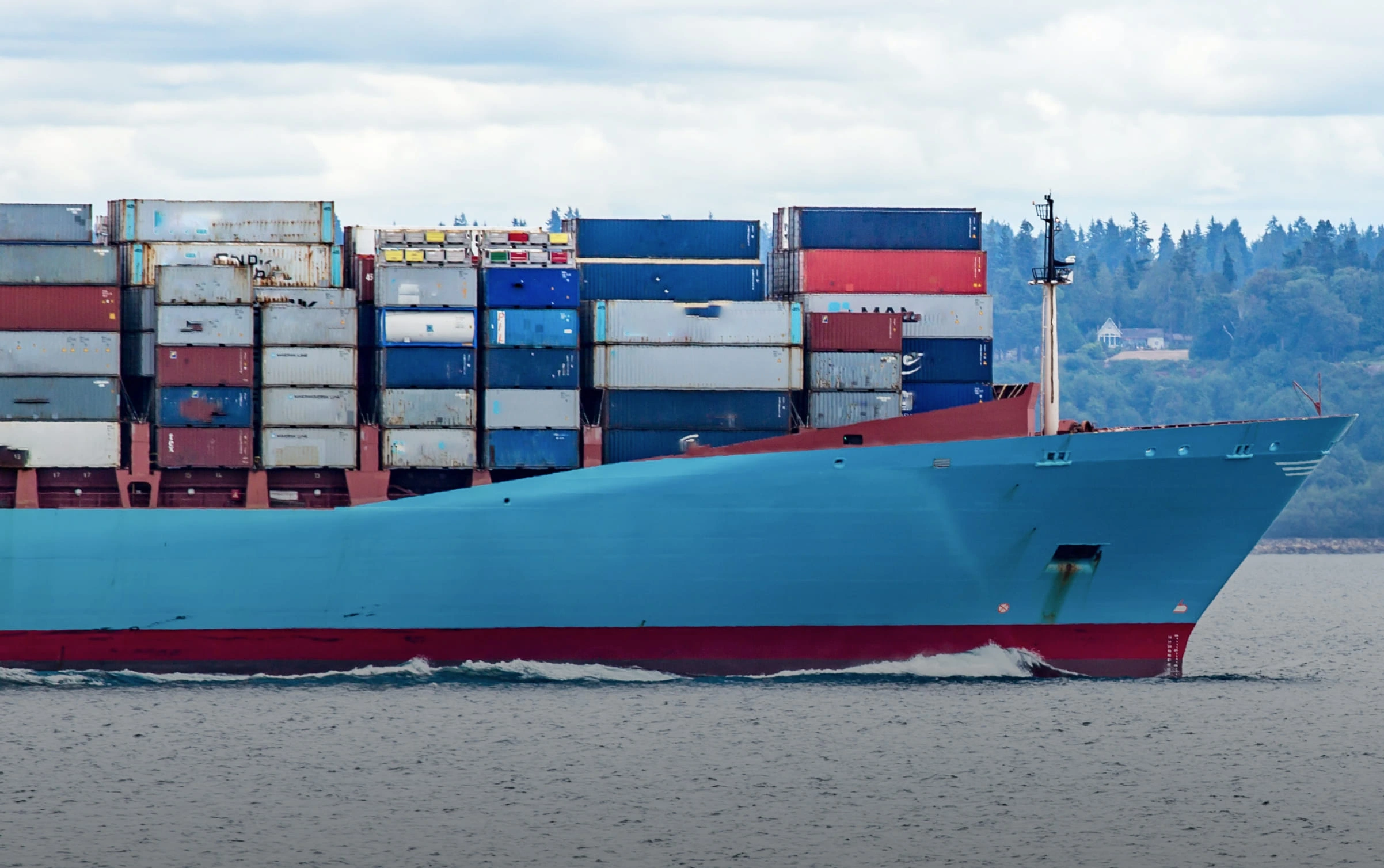Key Strategies To Ensure Cargo Safety During Logistics Operations
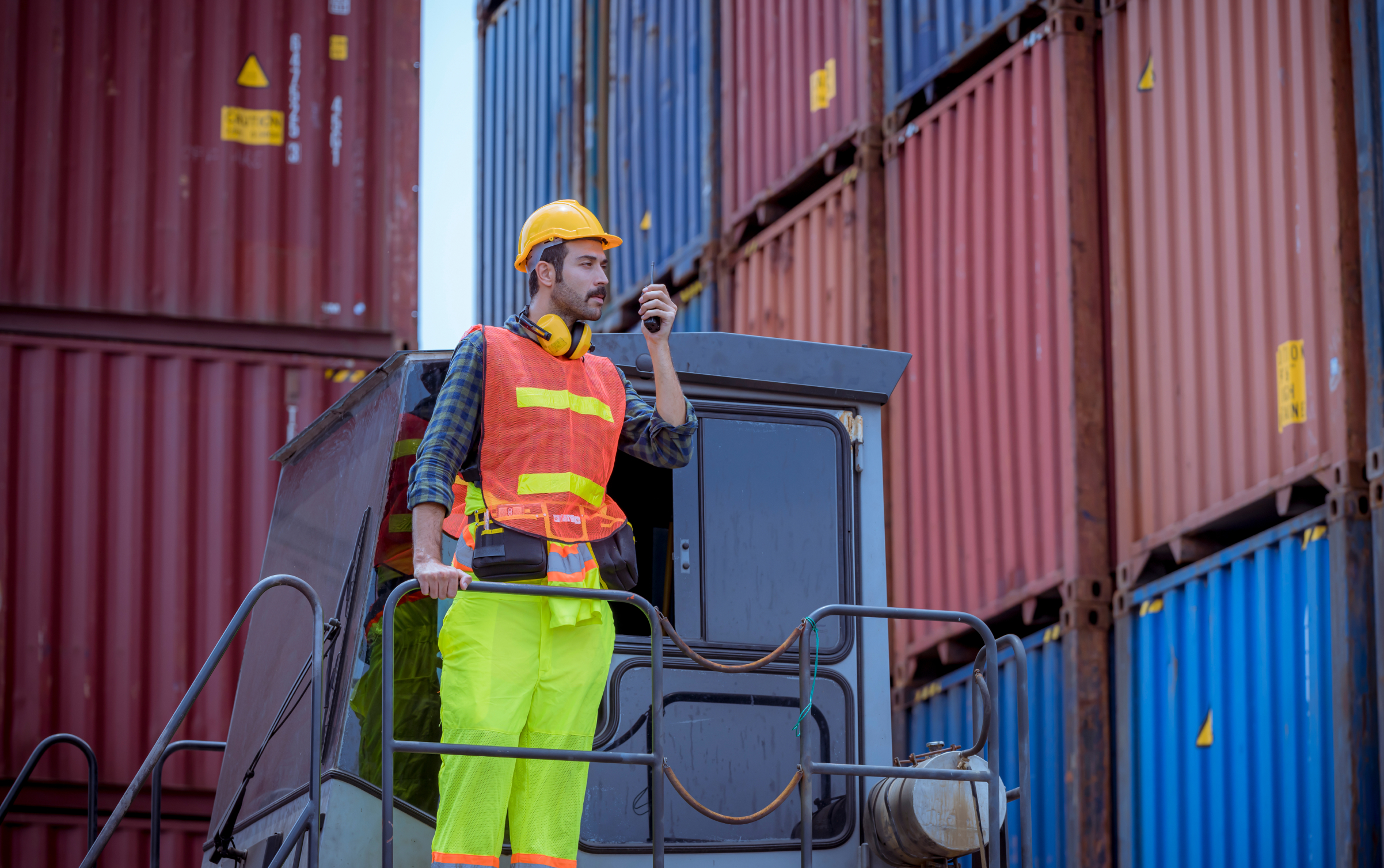
Cargo safety during logistics operations is a core concern for shipping businesses and freight forwarders. The concerns are quite valid, considering that global container shipment volume is estimated to reach 224 million TEUs by the end of 2024. The value of these goods, in many cases, is also high. And any loss or damage could impact many of these businesses' bottom line or continuity.
Ensuring cargo safety can go a long way to improving customer satisfaction because they get their goods or products on time and under the right conditions. Cargo safety is not just about loss or theft of goods. However, they are still very challenging due to the rise of piracy and insecurity across major shipping routes like the Red Sea and Panama Canal. Cargo safety ensures cargo is properly secured and managed to avoid loss, theft, or damage. It could be during inventory management or logistics management.
Our focus for the article is cargo safety during logistics operations. There are seven key strategies that will ensure cargo safety during logistics operations. We will explore them in this article.
Strategies To Ensure Cargo Safety During Logistics Operations
2-4% of cargo gets damaged during the shipping and logistics operations, including delivery processes. Cargo theft has also risen by 60% year over year. There has never been a more pressing need to ensure cargo safety during logistics operations than in the current logistics and shipping landscape.
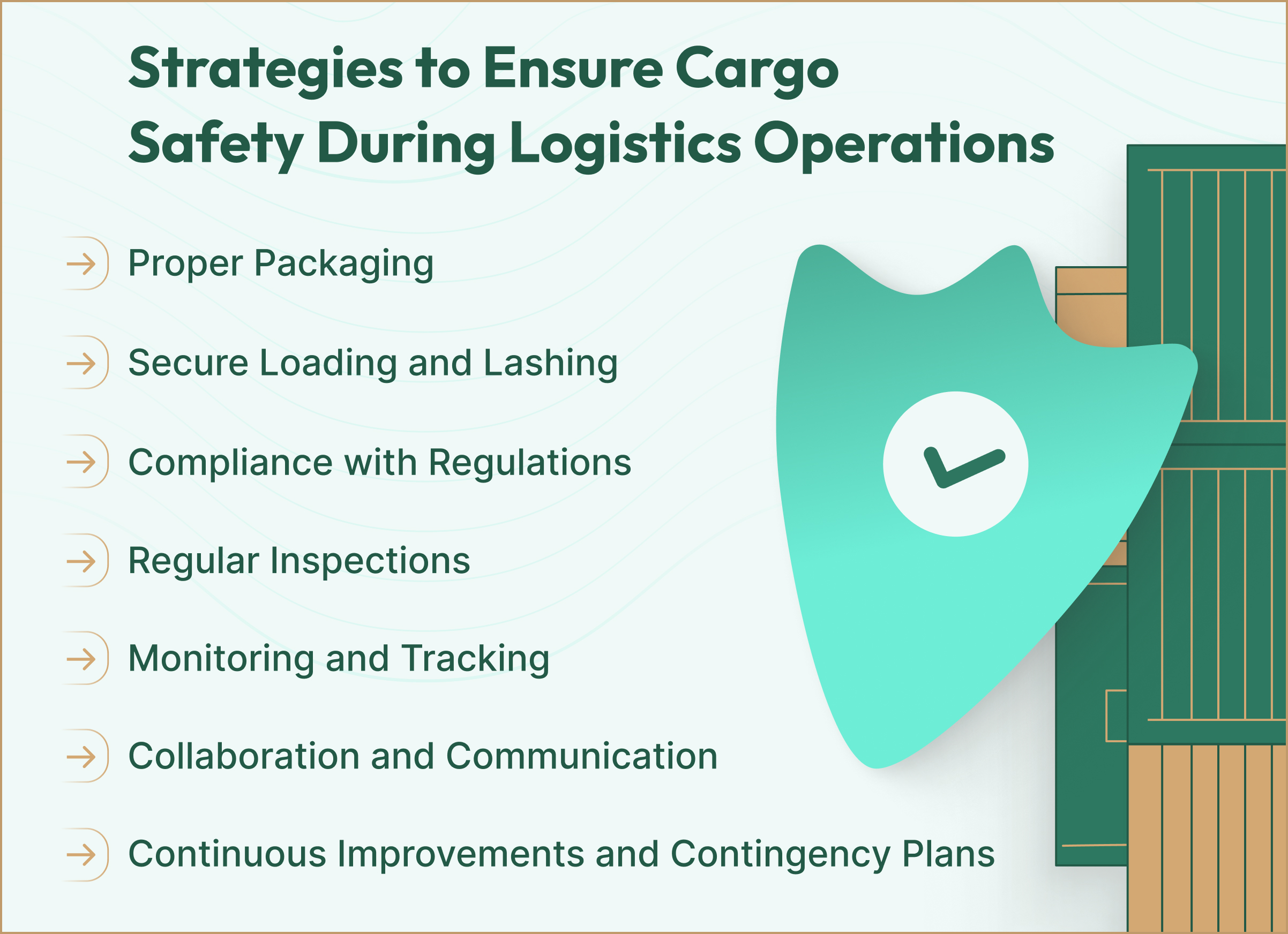
Proper Packaging
Proper packaging in logistics operations management is essential in avoiding damage and contamination of cargo during the entire shipping process. It helps ensure that the product is ideally protected from potential falls and certain conditions that could be detrimental to the value of the product.
Packaging entails using the materials and techniques for cushioning, strapping, and other exercises to ensure the product is kept safe throughout the entire logistics and order fulfillment processes.
Secure Loading and Lashing
Ensuring the cargo is well-fastened during the loading and unloading process is critical. This way, the freight forwarding businesses and sellers can ensure the cargo is well-balanced. It will also prevent tipping, shifting, and sliding during the logistics operations.
Several skills and techniques will come in handy while securing the load. They include using straps, braces, dunnage, or blocking and bracing techniques. Load bars and cargo nets play a vital role in ensuring balance during transit and can be very important.
Compliance with Regulations
Regulations are not just policies that seek to complicate the entire shipping process. Rules are put in place to guide and prevent catastrophic situations throughout the entire logistics operation. Compliance with these regulations is necessary. However, sometimes, it can be challenging.
Compliance involves taking the right approach and checking the necessary boxes, including documentation and other safety protocols. Platforms like Silq can be leveraged to ensure all of this is done correctly and when due. The application sends periodic alerts to remind or inform shippers and forwarders about the policy changes, safety guidelines, and documentation.
Regular Inspections
Regular inspections of shipping, logistics, and supply chain infrastructures are necessary. This gives useful insights into the state of these infrastructures, such as wear and tear or defects that may jeopardize the entire logistics operation.
In ensuring cargo safety during logistics operations, inspecting the different processes to gain other valuable insights, such as the manufacturing timeline and material handling, allows for effective planning and ensures that the necessary measures for cargo safety are considered promptly.
Monitoring and Tracking
The pandemic and the current state of geopolitics have enforced the need for 100% transparency and visibility into the entire shipping and logistics operation. This means that monitoring and tracking, the primary tools for facilitating transparency and visibility, are critical to any logistics and supply chain operations.
Monitoring and tracking solutions can provide the business with the location, status, and condition of cargo in real-time. This way, the business can quickly identify potential problems or risks and take action to mitigate them. Monitoring and tracking solutions also rely on GPS tracking, RFID tags, or IoT sensors to collect and communicate this information to all the necessary stakeholders.
Silq’s platform allows for easy monitoring and tracking of multiple shipments from the comfort of your system. The platform enhances the stakeholders' ability to plan and manage shipments seamlessly. Monitoring and tracking also help with transportation costs through route optimization solutions.
Collaboration and Communication
One of the major pillars of success in the modern supply chain is collaboration. It also ensures that businesses can leverage expertise, experience, and a wider pool of resources at a reduced cost. In ensuring cargo safety during logistics operations, collaborating with the right platform, processes, and third-party logistics businesses will give the supply chain an edge.
However, the foundation of collaboration is communication. There has to be an active and clear line of communication between all parties involved in the logistics and shipping operation, including shippers, carriers, warehouse operators, and customers. It will simplify reporting and address any safety concerns or incidents promptly.
An example of a typical collaboration is an effective warehouse management system. Good communication impacts the likelihood of future business and supply chain collaborations.
Continuous Improvements and Contingency Plans
It is important to have a contingency in place to ensure cargo safety if things go wrong during the logistics operation. This will facilitate a quick response to the situation and mitigate potential disasters.
On the other hand, continuous improvement ensures that logistics operations, cargo safety protocols, techniques, and solutions are consistently improved to enhance cargo safety during logistics operations.
How Kegosh Leverages Silq To Enhance Its Cargo Safety During Logistics Operations

Kegosh is an e-commerce business dealing with global cosmetics sales and distribution. The company was having issues with its goods' safety and security. It initially had several run-ins with the regulatory bodies but chalked it all up to overzealousness on their part. That is until the problems started.
Missing goods and several incidents from poor cargo securing ruled the day. The company was bleeding money due to the significant impact of these losses. And because it was mostly at fault, insurance wouldn’t touch them. That was when the leadership knew they needed a change.
In their search for a solution, the company came across Silq, a freight forwarding and shipping platform. Silq did some investigations, as they were typical. Silq found that major issues with the company’s incidents and safety violations were caused by poor planning. And to avoid inventory storage costs, the cargo was immediately shipped before adequate planning was conducted. It was also in a hurry to ensure that other ecommerce brands and ecommerce stores that relied on its products got their goods on time.
Because of poor planning, the company always had to rush its logistics operations, leading to poor safety measures that resulted in such incidents. With the problem identified, fixing it was easy. Silq sent experts to the company’s facilities to inspect the manufacturing process and material handling. This would help them identify a more suitable timeline, allowing for better logistics planning.
Silq’s platform also ensures that the documentation is in order and allows Kegosh to track and monitor its shipment with ease. With Silq in the picture, Kegosh became a compliant haven, and the incidents reduced drastically. There were no more issues with the regulatory bodies, and the company was better off.
Why Cargo Safety During Logistics Operations Is Silq’s Strong Suit
Some of the most important strategies for ensuring cargo safety are compliance with regulations, collaboration, monitoring and tracking, and regular inspections. Silq excels at this, helping users ensure their cargo gets to its destination without hassle.
The Silq platform is excellent for enhancing collaboration between all stakeholders, and it provides real-time insights that guarantee 100% transparency and visibility in the entire operation. Get started with us today.
Ready for Supply Chain Predictability?
Importers using Silq ship smarter, safer, and with total control.



